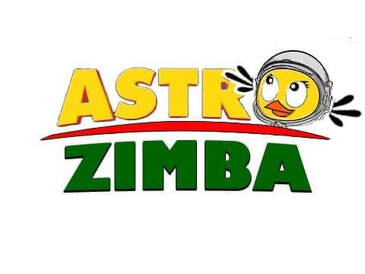Ruvimbo SamangaSpace Law & Policy Analyst  On the 2nd of October 2020, the Astro Zimba space education curriculum for young children began its programme, launching a pilot study with the Whitestone School, in Bulawayo, Zimbabwe. This space education curriculum recognises that building Zimbabwe’s space autonomy is hinged on the nation’s capacity to make a critical mass of skilled individuals. This capacity-building must necessarily begin from the early developmental stages. The Astro Zimba curriculum, created by myself and Marco Romero, in collaboration with InnovaSpace and Students for Exploration & Development of Space (Zimbabwe), is a series of lectures on space and space-related themes, using interactive sessions, games, videos, comic books and other learning activities to spark space science and technology curiosity amongst the youth. This is done in the hopes that more children, especially young girls, will be inspired to take up STEM subjects and careers. The founders of this programme identified a gap in existing curricula, one which they wish had been filled during their initial years, and one which they believe has a profound impact on the development of the space industry.  Space sciences and technology, while a rapidly developing and exciting field, can often be quite a technical subject area for young children to understand. That said, having a dedicated programme which delivers science content in an engaging, tailored and fun way helps to boost interest in young children. It has the dual effect of inspiring both genders to become involved, which is the goal of the Valentina project for girls, facilitated by InnovaSpace, acknowledging that young girls are underrepresented in the STEM sciences. Giving access to quality education boosts social and economic circumstances, alleviates poverty and empowers young girls, positively impacting on the SDG 1 (poverty reduction), SDG4 (quality education) and SDG5 (gender equality). The following lesson plans were presented during the pilot study. The introductory video sought to spark the learner’s curiosity and inspire more children to pursue careers in the space industry. Having careers in the space industry, the Founders thought it important to add a touch of personal experience and insights, including initiatives that have made a difference in their personal career journeys. The learners are introduced to each week’s theme through an interactive video message, before proceeding with practical in-person class sessions. As can be seen from the introductory lectures, the Astro Zimba programme is intended to be a very low and cost-effective means of disseminating critical space education and information, tailoring it to a young audience, and creating a model that will one day be replicated through schools throughout the country and Africa. As the programme gains momentum, so will the need for more resources and collaborators, especially towards the procurement of equipment (such as telescopes), and funding (towards the publishing of a space education handbook, videos, and other digital content). The use of visual media has had a profound impact on children because much of their learning has been facilitated through Google Classrooms. With the uncertainty of the COVID-19 pandemic, having a virtual platform has meant that the children can still participate and receive content even from the comfort of their homes. This has made a tremendous impact on the potential to scale vital space education and skills to even the most remote of communities. Which is why the Astro Zimba project will also diversify into Youtube and podcast versions, to cater to as many diverse needs and requirements across the country. We count on your support to continue to make this endeavour a reality for all children in Zimbabwe. The InnovaSpace Team says: If you would like to find out more about the Astro Zimba project, please do get in touch and we will put you in contact with Ruvimbo - it is an excellent project!
Comments are closed.
|
Welcometo the InnovaSpace Knowledge Station Categories
All
|
InnovaSpace Ltd - Registered in England & Wales - No. 11323249
UK Office: 88 Tideslea Path, London, SE280LZ
Privacy Policy I Terms & Conditions
© 2024 InnovaSpace, All Rights Reserved
UK Office: 88 Tideslea Path, London, SE280LZ
Privacy Policy I Terms & Conditions
© 2024 InnovaSpace, All Rights Reserved
 RSS Feed
RSS Feed